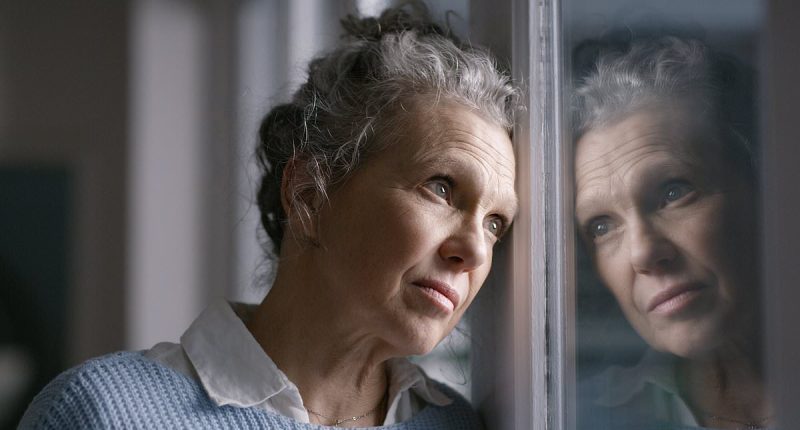Share this @internewscast.com
I’m 75 and have suffered from anxiety since I was a teenager. It developed to the point I was afraid of crowds and of being trapped. This meant I avoided lifts, buses and planes and wouldn’t eat in a restaurant unless I had the table nearest the door.
I was prescribed lorazepam, which changed my life – but since 2020, my doctor has refused to renew the prescription as some people have overdosed on it, or behaved erratically, and he fears litigation. This has had a devastating effect on how I live.
Name and address supplied.
Dr Martin Scurr replies: I feel deeply sorry for you, trapped in this prison of anxiety.
The problem is that sedatives such as lorazepam are addictive and the body becomes used to them, so over time patients need bigger and bigger doses to achieve the same effect.
With this comes the risk of unacceptable and even dangerous side-effects. This may not be what has happened in your case. However, because of the potential dangers, doctors have to follow strict regulations around prescribing tranquillisers long term – this is why your doctor won’t prescribe lorazepam any more.
You say in your longer letter that he has not offered you an alternative.
But there are other drugs that can be used long term that are not addictive in the same way: specifically, antidepressants. That would be the most suitable option for you.

One patient’s doctor has refused to renew her prescription of Lorazepam, an anxiety medication

The patient, now 75, has suffered from anxiety since they were a teenager
I would suggest this needs expert supervision – getting referred to a consultant psychiatrist would be your best chance of receiving appropriate medical treatment.
However, I think you should also ask for a referral to a clinical psychologist to help manage your symptoms with techniques such as cognitive behavioural therapy. There is every reason to believe that, over time, this combined approach could mean you are able to put these unacceptable symptoms behind you.
I’ve been in severe pain during the night since I had my knee replaced last October and typically get just two or three hours of sleep.
Yvonne Hale, Sidcup, Kent.
Dr Martin Scurr replies: Sadly, up to 20 per cent of patients report being in severe pain six months after a full knee replacement.
My first suggestion is that your knee might be infected. The tell-tale signs of this are redness, swelling and heat.
Another possibility is that the prosthetic joint has come slightly loose.
Or perhaps the nerves near your knee were damaged in the operation. This can cause persistent pain that is often accompanied by tingling and numbness.
Finally, not doing the post-op rehab – or doing the exercises incorrectly – can lead to the soft tissues, tendons or ligaments that surround the new joint becoming inflamed and painful. Each of these sources of pain can be addressed, but the first step is to see your GP, who will refer you for tests or physiotherapy, or send you back to the surgeon who did your operation, as appropriate.
One final thought is that, although you feel the pain in your knee, it may originate elsewhere in your body – something known as referred pain. (Consider how heart pain is often felt in the left arm.)
Pain from osteoarthritis, the most common form of arthritis, is often worse at night and, bearing in mind that your knee must have been severely osteoarthritic for it to be replaced, it is not impossible that your hip is also arthritic and that this is the real source of the pain.
Your GP can order X-rays of your hip joint to check for this.
IN MY VIEW: Patients are more than just statistics
Should NHS managers in underperforming trusts face a pay cut? This does not sit easily with me – primarily because ‘productivity’ is measured in terms of containing costs and meeting targets.
Neither addresses how it feels to be a fragile human being rather than a statistic: how patients feel when operations are cancelled, or when they have to spend hours waiting to be seen in outpatients or A&E, or when elderly relatives are treated on trolleys in corridors.
As a GP, I am currently going through multi-source feedback (MSF) – part of every doctor’s compulsory annual appraisal.
As part of MSF, a couple of dozen colleagues and three dozen patients complete questionnaires about my performance. This is key to the renewal of my licence to practise.
Although NHS managers have to undergo mandatory annual appraisal, usually conducted by their line manager, MSF is not a universal requirement. I believe MSF would be of greater value than merely according marks for productivity – or penalties for lack of it. The need to talk to patients is something that’s badly missing in healthcare administration.












